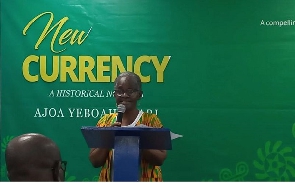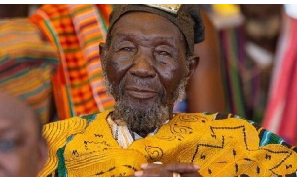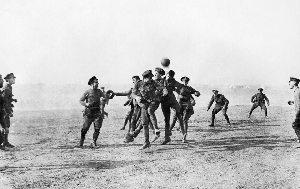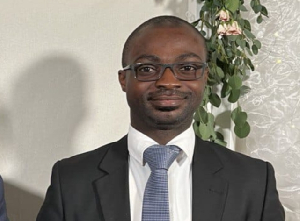Fiction is a function of the mind. And the wonder of the human mind is that it can be everywhere it wants to be. So, I invite you to come with me on a very unexpected journey. I was in what used to be called Standard One, which changed to primary four when I read a story, from the Oxford English Reader, with lines that began: "See me Lakayana with my spear! The spear which (someone or other) gave me" And so on and so forth, with Lakayana narrating the story of various possessions he had acquired, and how he obtained them in exchange for other possessions he had gotten earlier. Now, since I made the acquaintance of "Lakayana" in 1947, I haven't been able to ditch him! What do you think the author of the Lakayana story would say if he were able to hear this testimony about his story today? Writing fiction, good fiction is one of the most rewarding pursuits the human mind can engage in. Imagine loving, and being loved in turn, all through the air we freely breathe! A year before I encountered Lakayana, I had read about Kwaku Ananse, from Kan Me Hwe Book 3. Again, something from that book stuck in my mind; and has stayed there ever since. I had, of course, heard a lot about Kwaku Ananse from oral sources – older members of my extended family gathering around a fire, at night, and regaling us with stories so monopolized by Ananse that they were collectively called Anansesem, whether Ananse himself featured in any particular story that we were told or not. The particular Ananse story that stuck in my mind, after I had read it in the school textbook, stayed with me perhaps because at one stage, our teacher, who spoke in the to us, quaint Akuapem dialect of Twi, took over and read to us in impeccable Akuapem, what Ananse said, as he struggled, unsuccessfully, to wriggle out of the grip of his own sons, led by Ntikuma. They had caught him, after smelling the scent of groundnut soup in his cloth. Groundnut soup? Yes – a great famine had afflicted the land, and food was very hard to come by. In order to be able to obtain a greater share of whatever food was available than anyone else in his family, Ananse instructed his wife, Okonnore Yaa, to leave a sizable portion of every meal prepared by her, under a tree, in the deep forest. He claimed that a fetish, known only to Ananse, lived there and come and eat it. Ananse explained that when he ate the food, the fetish would be so filled with gratitude to the family that gave it to him that he would bless their farms to produce more food than anyone else's farms. But Ananse was lying, of course. What he did, in fact, was to go out every evening to secretly eat the food left for the fetish. He slipped out in the evenings (he said) to smoke his pipe in the bush. Why smoke the pipe in the bush? Oh, to avoid the nasty smell of the tawa [native tobacco], offending members of his family who did not smoke. You know, he, Ananse was so considerate and kind that e didn't want that the tawa's strong smell to nauseate non-smokers. Better to go into the bush, alone, at night, to smoke, and not risk annoying anyone, not so? But Ananse's selfish motive for instructing Okonnore Yaa to leave the food in the forest became explicit when he reached where the food was. He smartly extinguished his pipe and whacked the food to the last morsel. Now, on the day, in question, Okonnore Yaa's groundnut soup had been particularly delicious. And so enthusiastically did Ananse set about consuming it that quite a lot of it fell into the folds of his cloth. But he didn't notice it. Well, the next morning, when his children went to clean his bedroom, they detected a strong smell of groundnut soup there. Ananse's eldest, Ntikuma, who had the usual love-hate relationship with Ananse that oldest sons have with their fathers, got the picture at once. And he hatched a plan. He got his brothers to go with him to waylay Ananse in the forest the next night. They held him down, despite his struggles, till daybreak. And then, just as the sun was rising, Ananse became desperate, and told the children, "Moannyae me a medan mo agya!" [If you don't let me go, I shall turn into your father!"] Imagine the roars of laughter that greeted our teacher's enunciation of this stratagem by Ananse! I, for one, have never forgotten it. I ask you: where are today's equivalent of the Kan Me Hwe series of primary school textbooks in our schools? Or the Oxford English Readers and the "Supplementary Readers" that went with the book for each class? Where are today's "Ingwe The Leopard"? Or The Woman And Her Son? Sinbad The Sailor? Rip Van Winkle? I have no doubt that the educationists whose policy decisions led to the eradication of such books from the curriculum of our schools had very good reasons to do so. Well, over seventy years after I read the books I have mentioned, I have not needed to look up any of their titles before venturing to reveal my opinions about them. Can I say the same about any books in our schools today? The answer is sorry, No! That indefatigable writer and journalist, Ajoa Yeboah-Afari, I am sure, absorbed her love for the products of the craft of writing from the books she read as a child, Today, she has repaid, once again, her debt to her favorite writers, with the publication of a new book, New Currency. Absorb? Yes! Good writers are not taught they absorb the elements of good writing unconsciously, and subconsciously. Then, they disgorge it all, again, unconsciously and subconsciously. "I can see traces of.." (and a good writer's name is mentioned). The writer being praised for reminding readers of their favorite writers might be surprised, for he or she might not even have read the particular author compared to himself or herself. The reason is that good writing when absorbed and disgorged, would have gone through invisible processes akin to what physicists call "quantum mechanics". From atoms to quarks to neutrinos: where are they? What is their relationship to us? From physics, please allow me to transition you, as it were, to metaphysics! The story told by Ajoa Yeboah Afari in New Currency ISBN:978-9988-9094-2-0 [Smartline Publishing www.smartlinepublishers.com] is akin to seed for a novel in my own head! How come such a coincidence? Well, when the Cedi demonetization exercise which forms the subject matter of Ajoa's book occurred in March 1979, distressing Information reached me that the people of my home-town, Asiakwa were unable to change their money because there was no bank in the town, yet the old currency being withdrawn could only be changed at a bank. There WAS a bank at Kyebi, only seven miles. But lorry drivers were not accepting fares in the old currency to take passengers to Kyebi to change their money! I could see that this was a vicious cycle of a dilemma of the greatest proportions. If they had a humane lorry driver around, he would take passengers to the bank, wait for them to change their money, and then collect his fare in the new currency they had just collected. But where were drivers with a humanistic touch at a time (as the book makes clear) when queuing and chaos reign everywhere? So I drove to the Bank of Ghana and told the authorities about the; pain felt by half f my townspeople. God willing, I'll reveal what happened in a work yet to come. Not only that: I shall also reveal how, by coincidence, my own wife and youngest child were marooned in Abidjan, in the Ivory Coast, because Kotoka Airport, in Accra, was closed for the exercise, without notice! Did the Government of Ghana realize that there would be such difficulties for the populace when it embarked on what seemed to it to be the very good policy of demonetizing the Cedi currency of the time? Ajoa's lovely story takes us into the heart of events that happened inside people's families; their neighborhoods and within their inter-relationships. Governments, in particular, should read and learn from books such as Ajoa's, to tread carefully whenever they contemplate taking action whose consequences could affect a whole lot of people.















